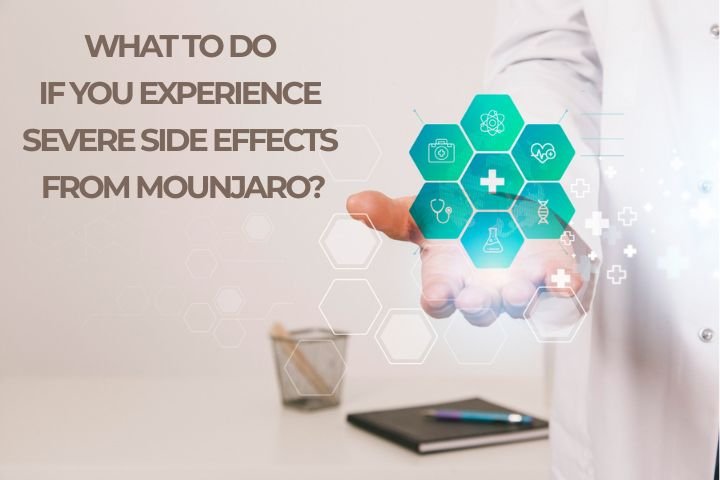
If you are suffering from severe Mounjaro side effects, it’s necessary that you consult a doctor immediately and receive a proper medical evaluation for your diabetes management that is appropriate for your situation. Although many side effects of this drug are minor and improve with time, there can be severe allergic reactions which will require emergency medical help if they occur.
Differentiating between usual Mounjaro side effects and dangerous body responses that require medical attention is a must as it will ensure your safety first of all. A case in point is the fact that despite the regular body side effects which may be nausea, vomiting, diarrhea, etc, any anomaly sighted should alarm you so as to be on the phone with your doctor in time.
Recognizing Emergency Situations
Severe Mounjaro side effects that necessitate immediate emergency medical attention include symptoms of pancreatitis, such as severe abdominal pain that spreads to the back, persistent vomiting, and fever. These signs may be indicative of acute pancreatitis, which is a critical condition needing prompt hospital care.
Another category of serious Mounjaro side effects needing emergency care are the allergic reactions. Symptoms like shortness of breath, swelling of the face, lips, tongue, or throat, severe body rash, or the pulse getting rapid show an allergic reaction that is potentially life-threatening and therefore, it requires immediate medical help.
Immediate Steps to Take
When experiencing severe Mounjaro side effects, stop taking the medication immediately and seek appropriate medical care based on the severity of your symptoms. For life-threatening symptoms like difficulty breathing or severe allergic reactions, call emergency services without delay.
Contact your prescribing healthcare provider as soon as possible to report severe Mounjaro side effects, even if you’ve sought emergency care. Your doctor needs to know about serious reactions to make informed decisions about your ongoing treatment plan and to report adverse events to appropriate authorities.
Medical Evaluation and Treatment
Healthcare providers will conduct thorough evaluations when patients present with severe Mounjaro side effects. This typically includes physical examination, laboratory tests, and sometimes imaging studies to assess the extent of the reaction and rule out serious complications.
Treatment for severe Mounjaro side effects varies depending on the specific symptoms and their underlying cause. Pancreatitis may require hospitalization, pain management, and supportive care, while allergic reactions might need antihistamines, corticosteroids, or epinephrine.
Long-term Management Considerations
After experiencing severe Mounjaro side effects, work closely with your healthcare provider to develop an alternative diabetes management plan if continuing the medication isn’t appropriate. Many effective diabetes treatments are available, and your doctor can help identify suitable alternatives.
If you’re able to resume Mounjaro treatment, your healthcare provider may recommend dose adjustments, more frequent monitoring, or additional supportive measures to minimize the risk of recurring Mounjaro side effects.
Prevention and Monitoring
Regular monitoring appointments become even more important after experiencing severe Mounjaro side effects. Your healthcare provider may recommend more frequent check-ups, laboratory tests, or specific symptom monitoring to ensure your safety.
Understanding your personal risk factors for severe Mounjaro side effects helps guide future treatment decisions and monitoring strategies. Some individuals may have underlying conditions or genetic factors that increase their risk of serious reactions.
Conclusion
Severe Mounjaro side effects require prompt medical attention and careful evaluation to ensure patient safety. While these reactions are uncommon, recognizing warning signs and taking appropriate action protects your health while allowing healthcare providers to make informed decisions about your diabetes management moving forward.
